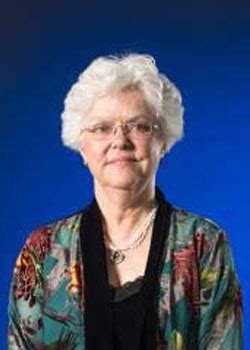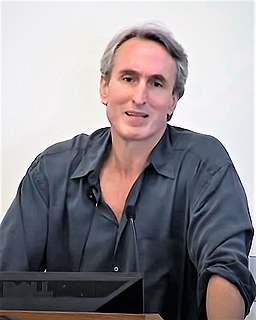A Quote by Bertrand Russell
Moreover, the attitude that one ought to believe such and such a proposition, independently of the question whether there is evidence in its favor, is an attitude which produces hostility to evidence and causes us to close our minds to every fact that does not suit our prejudices.
Related Quotes
Now, there are two different attitudes towards learning from others. One is the dogmatic attitude of transplanting everything, whether or not it is suited to our conditions. This is no good. The other attitude is to use our heads and learn those things that suit our conditions, that is, to absorb whatever experience is useful to us. That is the attitude we should adopt.
It is not true that a man can believe or disbelieve what he will. But it is certain that an active desire to find any proposition true will unconsciously tend to that result by dismissing importunate suggestions which run counter to the belief, and welcoming those which favor it. The psychological law, that we only see what interests us, and only assimilate what is adapted to our condition, causes the mind to select its evidence.
By our attitude, we decide to read, or not to read. By our attitude, we decide to try or give up. By our attitude, we blame ourselves for our failure, or we blame others. Our attitude determines whether we tell the truth or lie, act or procrastinate, advance or recede, and by our own attitude we and we alone actually decide whether to succeed or fail.
It is wrong for a man to say that he is certain of the objective truth of any proposition unless he can produce evidence which logically justifies that certainty. This is what Agnosticism asserts; and, in my opinion, it is all that is essential to Agnosticism. That which Agnostics deny and repudiate, as immoral, is the contrary doctrine, that there are propositions which men ought to believe without logically satisfactory evidence; and that reprobation ought to attach to the profession of disbelief in such inadequately supported propositions.
Our environment, the world in which we live and work, is a mirror of our attitude and expectations. If we feel that our environment could stand some improvement, we can bring about that change for the better by improving our attitude. The world plays no favorites. It's impersonal. It doesn't care who succeeds and who fails. Nor does it care if we change. Our attitude toward life doesn't affect the world and the people in it nearly as much as it affects us.
Everything depends on attitude. We are ambitious or lazy, enthusiastic or dull, loyal or undependable, according to our attitude. We get good grades or poor grades - according to our attitudes. Discouragement is an attitude. Lack of industry is an attitude. Failure to follow instructions is an attitude. attitude
...the idea of a spiritual part of our nature that survives death, the notion of an afterlife, ought to be easy for religions and nations to sell. This is not an issue of which we might anticipate widespread skepticism. People will want to believe it, even if the evidence is meager to nil... compelling testimony ... provides that our personality, character, memory ... resides in the matter of the brain, it is easy not to focus on it, to find ways to evade the weight of the evidence.
What sets science and the law apart from religion is that nothing is expected to be taken on faith. We're encouraged to ask whether the evidence actually supports what we're being told - or what we grew up believing - and we're allowed to ask whether we're hearing all the evidence or just some small prejudicial part of it. If our beliefs aren't supported by the evidence, then we're encouraged to alter our beliefs.
The world is broken, and all our attempts to fix it will inevitably fail, and some day all life will be extinguished from the planet and there will be no one to remember that any of us ever did anything. But this fact, strangely, does not delegitimize hope, because every now and again we find evidence that hope is helpful. This evidence, in my opinion, should be celebrated-even as we lament? and fight the devastation.



































